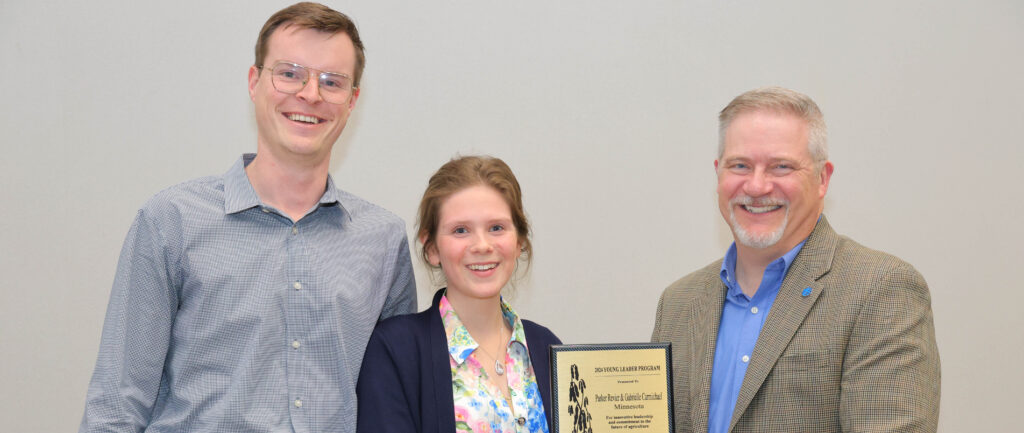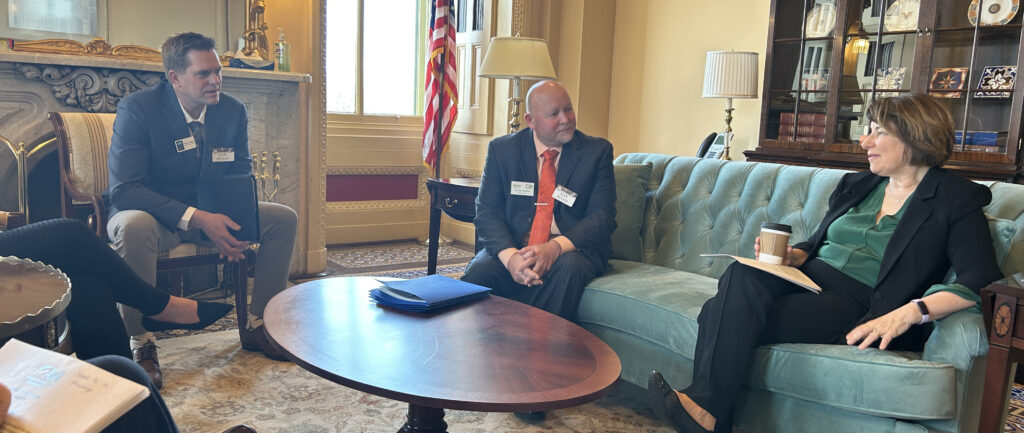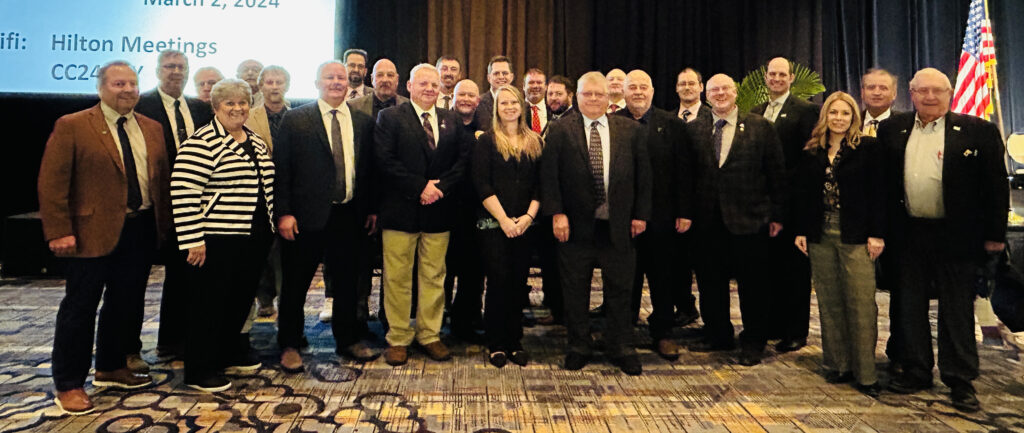Normally, the Minnesota Soybean Growers Association’s annual meeting is held during MN AG EXPO, serving as a winter reunion for MSGA members and Minnesota’s agriculture community. This year was a different affair, as farmers had to gather virtually to settle MSGA’s legislative resolutions, highlight the past year in advocacy and forecast the year ahead.
“You’ve all heard this before, but 2020 was an unprecedented year,” Executive Director Joe Smentek told the more than 100 members who participated in the annual meeting, which was conducted on Zoom and streamed on MSGA’s Facebook page. “Our MSGA team responded with the work needed with unprecedented wins. We hope 2021 will be unprecedented – in a good way – as well.”
Gov. Tim Walz appeared prior to the annual meeting to spotlight his administration’s priorities in 2021.
“Thank you to our producers,” Walz said. “I’m also grateful that your voice was there over the last few years to get a good budget and bonding bill that’s robust.”
Walz said the COVID-19 vaccine rollout is beginning to ramp up; eligibility has been expanded to Minnesotans 65 and over, and he’s optimistic the Biden administration will increase vaccine production.
“I hear you around the vaccine issue. … I’m hopeful the federal government is releasing a cohesive (vaccine) program,” the governor said. “We expect an acceleration.”
The day before the annual meeting, MSGA testified against the governor’s Clean Cars Minnesota Rule, and Walz indicated he’s aware of MSGA’s opposition. Walz reminded MSGA members he’s been a longtime proponent of biofuels, both during his first term as governor and his 12 years as Minnesota’s First Congressional District representative in Washington, D.C.
“I’ve been with you for two decades that producers are the solution to climate change,” Walz said. “Your voice has changed the dialogue around biofuels.”
Minnesota Department of Agriculture Commissioner Thom Petersen spoke about his department’s outlook for the year, touching on dicamba, the Ag Innovation Campus and more. Commissioner Petersen is hopeful MDA’s in-person trade missions, which paused last year, will resume in the near future. Petersen also thanked MSGA for advocating for livestock producers throughout 2020.

“Working with our stakeholders, we were able to make it through (2020),” Petersen said.
“Your association plays a critical role (in helping producers).”
House Speaker Melissa Hortman and Senate Majority Leader Paul Gazelka each spoke on the policies they’re focusing on during the current legislative session, which runs through May 17. The biennium budget will be a primary focus for both parties. Hortman predicted in-person advocacy meetings won’t happen until this spring at the earliest and praised MSGA for its advocacy outreach during the pandemic. Hortman, a supporter of biofuels, endorsed the Clean Cars rule, underscored the need for health care reform and said she hopes the pandemic will bring a rural revival to Minnesota.
“The budget conversation is going to be central,” Hortman said, adding, “Senator Gazelka and I are able to work well together.”
Gazelka said he’ll continue to support biofuels but added he opposes the Clean Cars rule along with additional energy regulations. Gazelka said he believes the state can balance the budget without increasing tax burdens on rural Minnesotans.
“A tax increase is not where I’m going to be,” he said. “I’ll protect the ag community related to the budget. … What farmers do is essential.”
MSGA Vice President Mike Skaug urged Gazelka to support biobased road sealants, one of MSGA’s 2021 legislative priorities.
“It’s going to be a good year,” Gazelka said.
Awards and adversity
MSGA President Jamie Beyer looked back on the past year in MSGA’s grassroots advocacy. The year started with a packed MN AG EXPO and the signing of trade deals at the White House. Toward the end of 2020, MSGA successfully advocated for full Section 179 conformity, which could bring up to $200 million in tax relief to Minnesota businesses and farm families.
“We couldn’t have accomplished all that we did in 2020 without the support of our members and farmer-led board,” Beyer said. “On behalf of the entire MSGA team, thanks for investing your time and resources in MSGA. We hope 2021 is a stronger year for our farm families.”
Cole Trebesch, chair of the Minnesota Soybean Research & Promotion Council, delivered the latest information on checkoff-funded projects. Following Trebesch’s speech, MSGA announced its annual awards. Lincoln County farmer Ron Bunjer, a former MSGA and American Soybean Association director, received the Advocate of the Year Award. Houston Engineering, a longtime MSGA sponsor, was named Industry Partner of the Year. The Council also announced its yearly award winners. Trebesch named Tom Frisch, a Council representative and treasurer of the Ag Innovation Campus board, Director of the Year. The Council recognized University of Minnesota researcher Aaron Lorenz for his efforts on checkoff-supported projects related to triple null and high oleic breeding.
Farmer leaders representing Minnesota on national boards also gave updates. United Soybean Director Lawrence Sukalski presented an overview of USB’s latest efforts in promoting value-added products, including a partnership with the NFL’s Indianapolis Colts that will use soy-based field turf. American Soybean Association Chairman Bill Gordon followed with a Washington, D.C., policy primer, a day after Joe Biden became the nation’s 46th president. Gordon said ASA, a nonpartisan group, has worked closely with the Biden transition team and is pleased with the appointment of USDA Ag Secretary Tom Vilsack.
“Improving the farm economy is far and away our most important priority in 2021,” said Gordon, a Worthington farmer.
John Kriesel, an Iraq War veteran and former state legislator, capped the annual meeting with a 45-minute keynote address. Kriesel who lost his legs in a roadside bombing, touched on his military career, overcoming tragedy, building leadership skills and maintaining a positive perspective through difficult times.
“Today is a gift, and tomorrow is never promised,” Kriesel said. “We all face adversity at some point in our lives. … What matters is the attitude we bring to the table.”





